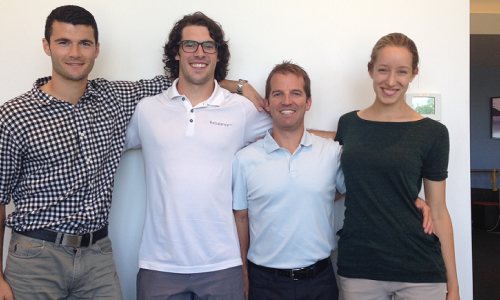
For two semesters, I was a Junior Business Analyst with the Financial Planning and Analysis team at Avigilon. Avigilon is conveniently located in the heart of downtown Vancouver with local eats from every ethnic origin and amenities less than five minutes away. The building is newly renovated with a modern theme and comes with some cool lunch break perks including an outdoor terrace, ping pong, a foosball table, and a PS4 in the atrium. Most importantly, Avigilon has an incredible group of people who supported my learning and development. The Financial Planning & Analysis (FP&A) team supports the organization by leading budgeting & planning, quarterly and monthly financial reporting, and information analysis that helps the company make decisions. There are always multiple projects occurring simultaneously, which can result in a steep learning curve.

With any new position, it can be overwhelming to learn all of the organization’s processes and absorb all of the information presented. However, attention to detail and asking good questions can help you adjust to a challenging workload. This article will focus on how to develop these two key skills and how they will help you in your new position.
Do you get annoyed when someone asks you a question they could have solved themselves with a bit more effort? Don’t be that person. Asking good questions will demonstrate your thought-process, initiative, and ability to plan ahead. However, when you come across an area you are unsure of, there are two reasons why you should avoid immediately asking your supervisor for the answer:
-
It does not allow you to develop a well-thought-out question and demonstrates to your supervisor you have not put in the time to solve the problem yourself.
-
You fail to develop the skillset of asking good questions which may prolong your onboarding process and require more time for you to familiarize yourself with the organization.
A better strategy would be to spend some time to develop a hypothesis and experiment with solving the problem. Try and propose solutions to the problem yourself. If the problem is conceptual, write out what you know, what the goals are, and what information do you need to answer the problem or complete the task. Practicing this will help you learn more about the organization or task at hand and enable you to develop a framework to ask better questions – a skill that extends beyond the workplace. After you have gathered the information or developed your proposed solution, you will be better prepared and more confident in asking questions to your manager.
Attention to Detail
You’ve heard this, it is a requirement in almost every job description - but why is it so important? Perhaps it is better to ask what would happen in the absence of attention to detail:
-
Your manager may think you are lazy for not reviewing your work before sending it to them.
-
Going through multiple revisions could be a good learning opportunity, however, it also hinders the team from efficient and effective project execution.
-
Critical errors can lead to a loss of credibility.
Here are some tips to better prepare yourself on the job and to minimize the chances of errors:
-
Make lists and get organized: Develop a set of small tasks within the larger goal or assignment that needs to be completed. Doing so will give you checkpoints in which you can review your work as you go. Be sure to set time aside to review your work before it is to be submitted.
-
Print out your work. There has got to be evidence out which proves that errors are more easily identified on paper than on a screen. Printing out your work for review will exponentially help you in screening out errors.
-
Check your work for logical or numerical errors. Check if the numbers or commentary you provide make sense within the context. Verify the data sources for values that seem out of the norm. Find other sources to back-up your numbers and make sure your final product makes sense.
In summary, take the time to develop good questions and check your work. Your manager will appreciate you much more if you demonstrate thoughtfulness, critical thinking, and produce accurate work, as opposed to submitting work that has errors and is not carefully thought out. These skills will help you navigate challenges and help you establish yourself as a valuable, independent employee.















